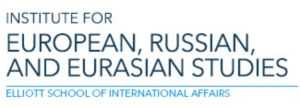After nearly three decades of deep economic transformations in Central Asia, we are now witnessing the rise to power of a transnational Islam adapted to the rationale of the market economy. With globalization, Islam tends to open itself to all the key themes of the world market and become the vehicle of demands for individual autonomy.
For these new Islamic entrepreneurs, economic success is indeed a divine payment. In this logic, personal enrichment, as divine repayment for exemplary conduct based on the principles of Islam, is perceived as positive so long as money is “properly acquired” and purified by tax (zakat).
Here, two researchers speak about interesting developments in the rise of capitalist Islam and how it is affected by the cultural influence of migration to Gulf countries.
How Do Capitalist Islamists Make Use of Their Money and Envision the Future?
Aisalkyn Botoeva is a Visiting Fellow at the Islamic Legal Studies Program of Harvard Law School. Her dissertation titled “Moral Futures: The Emergence of Islamic Businesses in the Post-Soviet Economy” was defended at the Sociology department of Brown University.
In my broader project, I explore how various factions—composed of entrepreneurs, state officials, and religious authorities—have come to articulate different orientations of Islam in the market. I identify three main orientations, or what I call moral futures: National Islam, Capitalist Islam, and Spiritual Islam. I focus on the second moral future as articulated in the context of Kyrgyzstan, most strongly by a social alliance of actors connected to the Turkish philanthropist Fethullah Gülen. Drawing on observations and in-depth interviews conducted between 2012 and 2015, I discuss how this faction praises the market economy for opening new pathways for development and aims to build a better future through discipline, industriousness, and ethical market practices forged by Islam. Most entrepreneurs who follow this movement invest their money in “modern” business activities and donate to “progressive” schools, mosques and developmental projects that defy government intervention. In contrast to other factions, Capitalist Islamists lean toward moderation of pious practices and believe that profiteering and prosperity are justified as long as they are entwined with ethical norms within entrepreneurialism.
“Bourgeois Islam,” Gulf Migration, and Post- National Sentiments
Manja Stephan-Emmrich is Junior Professor at Institute of Asian and African Studies, Humboldt University of Berlin. She studies cross-sectional area of Islam in the societies of Asia and Africa
In anthropology, the new urban Muslim middle classes are discussed purely in the context of social engineering. Thus, middle-classness, or embourgeoisement, is seen as rooting individuals in state projects of national legitimacy (Jones 2017). In Central Asia, the so-called “new Uzbeks” (or “new Tajiks”) are understood as a government-promoted new citizenry that has found its place in these countries’ post-Soviet capitalist order (Trevisani 2014). In a rather different way, I also seek to explore how middle-class sensibilities are loaded with post-national sentiments. Scrutinizing the concept of “bourgeois Islam” in the context of Gulf migration from Tajikistan, I show how middle-class aspirations are formed, negotiated, and pursued, as well as linked with Islamic cosmologies and an “entrepreneurial piety,” abroad.
While Dubai’s neoliberal economy offers individual autonomy, independence from national job markets, and ethnic and kin-based networks, the utopian international Islamic community provides a space for constructing alternative—yet elitist—business, market and cultural identities. By fashioning themselves as proper (that is, moral and non-corrupt) Muslims, well-educated and high-skilled Tajik migrants escape destined immoral futures at home and create the conditions for alternative, morally prosperous social projects abroad. With a focus on Tajik migrants’ educational, housing, and consumer aspirations, which follow Islamic ideals, I argue that Tajiks have urban middle-class sensibilities, which are global and cosmopolitan rather than oriented toward the Tajik nation.
On January 29, 2018, GW’s Central Asia Program organized a workshop on “‘Bourgeois’ Islam, Prosperity Theology and Ethics in Muslim Eurasia” in the framework of the CERIA (Central Eurasia-Religion in International Affairs) Initiative, generously funded by the Henry Luce Foundation.









